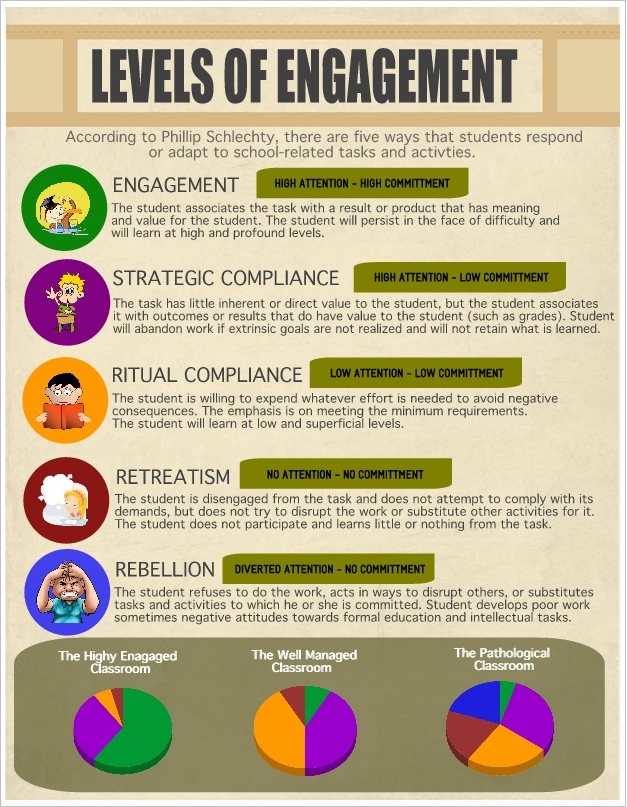Dear Deep Creek School Family,
 Reading encompasses everything. It's our longest block of the day and one of the most important. Each day we provide our students with knowledge that they will continue to use and expand on. During the reading block it's imperative that our students are engaged from start to finish. How can we do this you might ask? It takes time, hard work, and dedication on a teachers part. Below you will find some helpful strategies that you may incorporate to increase student engagement.
Reading encompasses everything. It's our longest block of the day and one of the most important. Each day we provide our students with knowledge that they will continue to use and expand on. During the reading block it's imperative that our students are engaged from start to finish. How can we do this you might ask? It takes time, hard work, and dedication on a teachers part. Below you will find some helpful strategies that you may incorporate to increase student engagement.
1. Have a plan for how your students will interact with the content.
Ask yourself these questions:
Which partner/group member is going first?
What is the order for sharing in the partnership/group?
How will the students communicate using the academic language?
Who speaks or writes first?
What are the other kids doing when it’s not their turn?
2. Create visual materials with your students, and display them as you go through the lesson.
As teachers, we LOVE having pretty things in our classroom. This includes anchor charts, posters, and word walls. We can easily get carried away preparing them and finding the perfect spot to put them up before we even begin our lesson. I want to challenge you to try something different.
Prepare the skeleton of your materials such as an anchor chart, and fill them with content as you teach.
For vocabulary, have the word cards written ahead of time, but add them to the word wall as you go through the lesson.
Allow your students to record and generate information with you, through use of thinking maps, whiteboards or learning journals.
Your students will make stronger connections to the content you are teaching when they are a part of the process. When you involve your students, they have the opportunity to take more ownership of the content they are learning.
3. Make learning words fun!
One of the main reasons why I put a huge emphasis on learning words in my classroom, is because kids often skip over words they encounter without thinking twice about their meaning. When I am reading aloud, and I read over a word that I am “unfamiliar” with, I make a big deal out of it. I show my curiosity by trying to figure out what the word means based on the context of the sentence or paragraph. I also show the kids that it is okay to use resources such as a dictionary or a kid version of “Google”, etc. I will get really excited when I figure out what that word means, and I show my students my enthusiasm. I also tell my students that I plan on using that word next time I have the opportunity to do so. It is important to always model how learning new words can be a lot of fun!
4. Integrate grammar throughout your reading block.
Integrate the required grammar skills into your reading block. In fact, think about integrating along with every subject you teach!
Here are just a few examples:
When you have your kids read any piece of text, such as a poem, lyric, nursery rhyme, close read – focus on one part of speech by having your students underline or circle each word they find.
When you are going over tier vocabulary words, take a moment to let your students organize them into their journals using an interactive notebook activity or a thinking map, and then have them write a sentence that makes sense.
Instead of teaching grammar separately, incorporate it into your instruction, centers, or small groups.
5. Make ordinary skills novel by incorporating songs, games, plays, show and tell, wordless books, etc.
Having songs in the classroom is a great way to get students familiar with the content so they remember key concepts. (Youtube has many)
6. Read aloud as often as you can.
When students are able to hear an adult read text aloud, it becomes their inner voice. They are able to build upon their language skills, vocabulary, reading strategies, expression, etc. They are also able to associate reading with positive experiences.
7. Make sure the kids have a pleasant atmosphere when reading.
The possibilities are endless! You want to make sure your library is accessible so that your students can find a book that is a good fit for them. Having a pleasant atmosphere and a variety of book choices are important when it is time to read independently.
8. Try to keep the same theme theme across the curriculum, whenever possible.
Immersing students in relative content across the day makes such a big difference!
If your basal program text is based around ocean animals, perhaps you can check the science curriculum to see if there are any ocean science lessons, and cover those specific standards during that week or unit.
When you are planning writing or writer’s workshop, select a prompt that supports the theme you are have planned for reading, science, social studies, etc.
Carefully planning your day is key, because your students will absorb more vocabulary and content if you are able to extend the content throughout the entire day, week, etc.
I hope you are able to use at least one of these engagement strategies within your reading block. If you need help, please come see me! I'm always here, and would love to help! :)
Additional information/resources are on this post:
http://educationtothecore.com/2016/05/8-ways-engage-students-reading-block/
Thanks,
Kristina



































